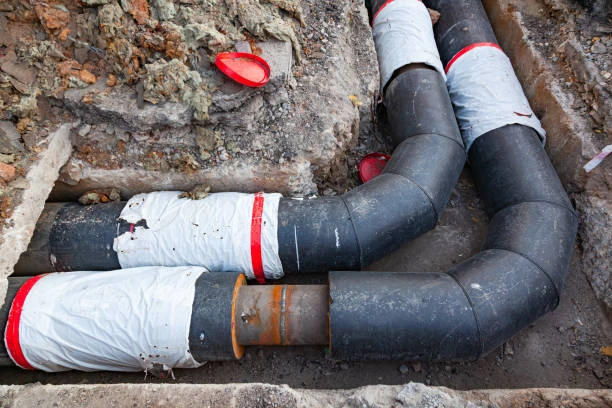Introduction
Water Pipe In a proactive move to ensure public health and safety, DeKalb County has initiated a comprehensive testing program aimed at detecting lead levels in its water pipes. This initiative comes in response to growing concerns about lead contamination in drinking water across the United States, particularly in older infrastructure. In this article, we will explore the significance of testing water pipes for lead, the methods employed in DeKalb County, the potential health risks associated with lead exposure, and the steps being taken to address any issues that arise.
Understanding Lead in Water Pipe
What is Lead and Why is it a Concern?
Lead is a toxic metal that can have serious health implications, particularly for young children and pregnant women. Historically, lead was widely used in plumbing systems due to its malleability and resistance to corrosion. However, it is now understood that lead can leach into drinking water, especially when water sits in pipes for extended periods. This leaching can occur through various means:
- Corrosion of Lead Pipes: Older homes and buildings may still have lead pipes, which can corrode over time.
- Lead Solder: Lead solder used in plumbing fixtures can also contribute to lead contamination.
- Brass Fixtures: Some brass fixtures contain lead, which can leach into the water supply.
Health Risks Associated with Lead Exposure
Lead exposure can lead to a range of health issues, including:
- Neurological Effects: In children, lead exposure can result in developmental delays, reduced IQ, and behavioral problems.
- Cardiovascular Issues: In adults, lead exposure is linked to high blood pressure and increased risk of heart disease.
- Kidney Damage: Prolonged exposure can lead to kidney damage and decreased kidney function.
Given these risks, ensuring that drinking water is free from lead contamination is crucial for public health.
The Testing Initiative in DeKalb County
Objectives of the Testing Program
DeKalb County’s water pipe testing initiative aims to achieve several key objectives:
- Identify Lead Sources: The program seeks to identify the presence of lead in the county’s water infrastructure, including pipes, fixtures, and solder.
- Ensure Water Quality: By testing for lead, the county can ensure that its drinking water meets safety standards and is safe for consumption.
- Raise Public Awareness: The initiative aims to educate residents about the risks of lead exposure and the importance of water quality.
Methodology of Testing
The testing process in DeKalb County involves several steps:
- Sampling Locations: The county has identified various sampling locations, including schools, public buildings, and homes, particularly those built before 1986 when lead pipes were more commonly used.
- Water Sampling: Trained personnel collect water samples, which are then sent to certified laboratories for analysis.
- Testing for Lead Levels: The laboratories test the samples for lead concentration, measuring parts per billion (ppb) to determine compliance with the Environmental Protection Agency (EPA) standards.
Timeline of Water Pipe the Initiative
The testing initiative began in [insert date] and is expected to continue over the following months. The county plans to release the results of the testing program to the public, providing transparency and accountability.
Community Engagement and Water Pipe Education
Informing Residents
As part of the testing initiative, DeKalb County is committed to keeping residents informed about the process and its implications. This includes:

- Public Meetings: The county is holding public meetings to discuss the testing program, answer questions, and address concerns.
- Informational Materials: Flyers, brochures, and online resources are being distributed to educate residents about lead exposure and the importance of testing water quality.
Encouraging Water Pipe Participation
Residents are encouraged to participate in the initiative by:
- Requesting Testing: Homeowners can request testing for lead in their water supply, especially if they suspect they have lead pipes or fixtures.
- Sharing Information: Residents can share information about the testing initiative with their neighbors and community members to raise awareness.
Addressing Lead Water Pipe Contamination
What Happens if Lead is Detected?
If lead is detected in the water samples, DeKalb County has a plan in place to address the issue:
- Notification: Residents will be notified if lead is found in their water supply, along with guidance on what steps to take.
- Remediation Efforts: The county will work with homeowners to develop remediation plans, which may include replacing lead pipes or fixtures.
- Ongoing Monitoring: Following remediation, ongoing monitoring will be conducted to ensure that lead levels remain safe.
Long-Term Water Pipe Solutions
Beyond immediate remediation, DeKalb County is also focusing on long-term solutions to prevent lead contamination in the future:
- Infrastructure Upgrades: The county is investing in upgrading its water infrastructure, including replacing old lead pipes with safer materials.
- Public Awareness Campaigns: Continued education efforts will aim to inform residents about the importance of water quality and lead exposure risks.
Conclusion
The testing of water pipes for lead in DeKalb County is a crucial step in ensuring public health and safety. By identifying potential sources of lead contamination and taking proactive measures to address them, the county is working to protect its residents from the harmful effects of lead exposure. Through community engagement and education, DeKalb County aims to foster a culture of awareness and responsibility regarding water quality. As the testing initiative progresses, it serves as a model for other communities facing similar challenges.
FAQs
- What is lead, and why is it a concern in water pipes?
- Lead is a toxic metal that can leach into drinking water from lead pipes, solder, and fixtures, posing serious health risks, particularly to children and pregnant women.
- How is DeKalb County testing for lead in water pipes?
- The county is conducting water sampling at various locations, including homes and public buildings, and sending samples to certified laboratories for analysis.
- What happens if lead is detected in my water supply?
- Residents will be notified, and the county will work with them to develop remediation plans, which may include replacing lead pipes or fixtures.
- How can I request testing for lead in my home’s water supply?
- Homeowners can contact DeKalb County’s water department to request testing for lead in their water supply.
- What are the long-term solutions to prevent lead contamination in DeKalb County?
- The county is investing in infrastructure upgrades, replacing old lead pipes, and conducting ongoing public awareness campaigns about water quality.


















